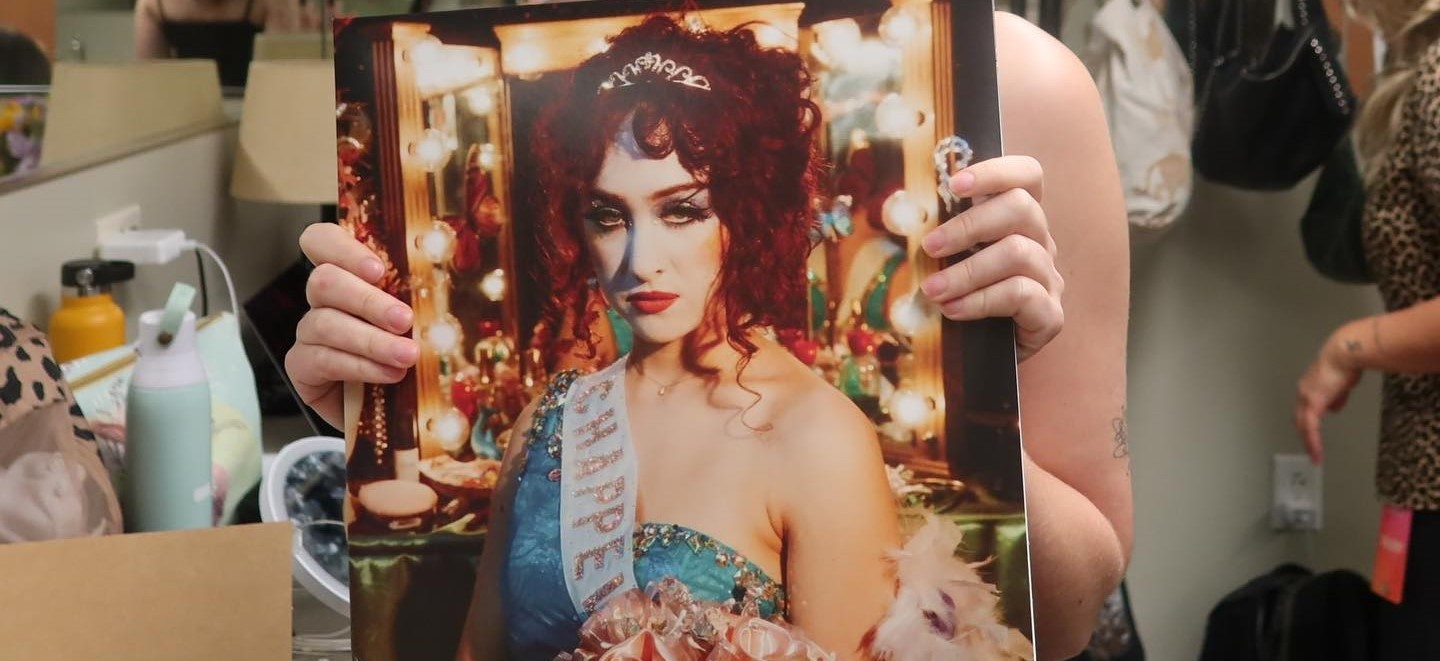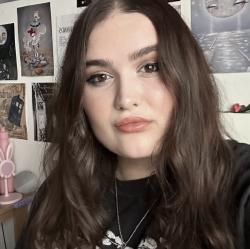
TV Editor Jasmine Davies assesses the rise of Chappell Roan and the effect she is having on the music industry
Chappell Roan is redefining what it means to be a pop star. Her powerful vocals, accompanied with her drag persona has the internet falling in love with her – with most admiration coming from the lesbian community. Many of the community who grew up listening to Hayley Kiyoko’s ‘Girls Like Girls’ on repeat, are thrilled to see a lesbian artist break into the mainstream. However, fame comes at a cost, and Chappell isn’t having the easiest time dealing with her newfound fame.
“Chappell Roan is redefining what it means to be a pop star.“
What exactly is the “Roan Effect” and how did Chappell become a household name? Myself, and many others, first discovered her back in April when she made her Coachella debut. Singing her hit songs such as ‘HOT TO GO!’ and ‘Pink Pony Club’, she instantly became a worldwide sensation. Overnight, Chappell became an icon for the LGBTQ+ community. From an outsider’s perspective, it seems like all her dreams have come true, but that just isn’t the case. In August of this year Chappell posted a statement on her Instagram – which has her still receiving a lot of backlash. Within this statement she addresses the “stalking” and “harassment” she has experienced whilst being in the limelight. Revealing that she isn’t going to tolerate it. She tells her followers “When I’m on stage, when I’m performing, when I’m in drag, when I’m at a work event, when I’m doing press…I am at work. Any other circumstance, I am not in work mode.”
Personally, I think she has done nothing wrong. Everyone is allowed to set boundaries. Just because the world expects celebrities to tolerate “predatory” fan behaviour, it doesn’t mean it has to stay this way. Chappell further goes on to say that this behaviour has “become normalised because of the way women who are well-known have been treated in the past.”
What do I think about this? It’s about time we had someone in the limelight speak up like this. A constant cycle of abuse comes with stardom. Amy Winehouse was poorly treated by the media and the public throughout her career, which was a factor that resulted in her early death. Celebrities are human beings, just like you and me. I can barely deal with making small talk with strangers, so I can’t imagine what it would be like to be having the whole world’s eyes on you 24/7.
As a person who spent a large amount of my teenage years on stan twitter – attending concerts, signings, and conventions – I’ve seen it all. The most prominent behaviour is the forming of extreme parasocial relationships. As much as you may admire a celebrity, they are not your friend. They don’t owe you anything.
“Just because the world expects celebrities to tolerate “predatory” fan behaviour, it doesn’t mean it has to stay this way.“
When I was 14, I bought tickets to meet one of my favourite actresses. I idolised this person. Counting down the days till it was time to meet them. I had even planned our conversation in my head. It was going to be everything I’d dreamed of. However, that just wasn’t the case. They were courteous and kind, but I expected so much more. Instead of having the conversation I wanted, instead I was given a quick greeting and a selfie.
As I got older, I realised I had no right to be angry. One interaction does not reflect a person’s character. Maybe they were in a rush. They could’ve been having a bad day. Perhaps they were tired. But does any of that really matter? They were not entitled to give me anything – besides the photograph and autograph that I paid for. Despite Chappell maybe not liking the idea of your typical fan meet and greet, that doesn’t mean she doesn’t care about her fans. Instead, she invites her audience to be active participants at her shows.
Something I admire her for is her themed concerts, encouraging audiences to dress up. Themes such as ‘Midwest Princess’, reflecting her Missouri upbringing, has her fans queueing up in their best camo print outfits. This not only creates a unique experience but creates an atmosphere where people can express themselves for who they are.
Chappell’s rise to fame is still very recent, yet the impact she has had it bigger than words can describe. I hope she continues to have a lifetime of success, whilst maintaining the boundaries she has set. Chappell, you’ve got the brightest future ahead of you, and for that I say, ‘Good Luck, Babe!”
If you like this, read more here:
Album Review: Chappell Roan – The Rise and Fall of a Midwest Princess

Comments